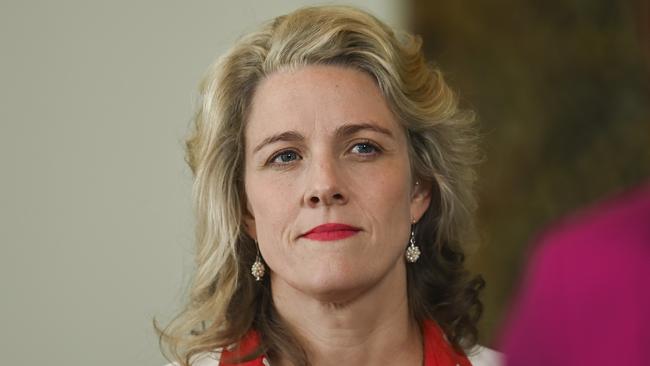
Clare didn’t create the problem. It started because, way back in the 1990s, it became clear there was a large and growing demand in Asia for Australian higher education, and students would pay generously for it.
It spawned a huge international education industry in Australia – which now dwarfs the earnings from tourism – and with rivers of revenue pouring into higher education from overseas it became very easy for successive federal governments to ease back on university funding, particularly for research.
From 2014 onwards, as the Chinese student market in particular sent billions of dollars to our top research universities, there was seen to be even less need to top up research funding. After all, Australia kept on lifting its research quality (according to university rankings), driven by money from Chinese student fees. The Morrison government took things a step further, reducing the subsidies it gave universities for teaching, which hit all universities, including those not benefiting so much from international students.
Then, when Labor was elected in 2022, Clare arrived as minister with a clear agenda to solve Australia’s skill shortage by increasing the number of less privileged students getting a university education. He launched his Universities Accord review to great fanfare, saying he was looking for “big, spiky ideas” to transform higher education.
But reform costs money and the universities which educate most of Australia’s less privileged students – those from low socio economic backgrounds and regional areas – are the ones which benefit least from the influx of international students.
They need more money to enrol more so-called “equity” students, particularly because these students can cost more to educate because they generally come to university with lower levels of academic achievement.
Clare is not succeeding in winning more funding from general revenue but there seemed to be another answer. Redistribute to the whole of the university sector some of the earnings of the privileged few universities – such as Sydney, Melbourne, Monash, UNSW and Queensland – which are making hay from international students.
The Accord’s interim report suggested a levy, or tax, on international student fees. Now the Accord panel is believed to favour a more general levy, not wanting to appear to be solely targeting international students. But the pot of money which is there to redistribute to other universities is the same.
It’s a radical idea which will cause a bitter split among universities and likely to produce responses which cause even more problems.
Even as the idea of the levy grew, the University of Sydney – which bounced back from Covid to earn an extraordinary $1.4bn from international students fees in 2022 – is still using its drawing power to take its international student recruitment to new heights.
Lately it’s complained that its international student visas aren’t being processed fast enough. That’s largely because there are so many of them. It appears that Sydney’s answer to a proposed levy is to enrol even more international students to offset it.
This behaviour just increases the pressure for a government-imposed cap on international students. Surprisingly some vice-chancellors from “have not” universities said in a meeting with Home Affairs Minister Clare O’Neil on Friday that they could back such a cap. It’s not because they want a limit on their own international students. They just want a limit on the likes of Sydney taking an even bigger share.
The word is that the minister is open to the idea of a cap, which would, in effect, formalise what her department has already done by slowing down visa processing and increasing refusal rates.
Clare’s problem is to find a way to defuse these pressures and ensure they don’t overshadow his Accord by setting off a cascading series of “ate the spider to catch the fly” type of regulatory measures.
The “have not” universities point out that the migration crackdown is reducing what international student revenue they do get, when they are the ones which need money to implement Clare’s equity agenda.
Touche.




For sure Education Minister Jason Clare didn’t plan it this way but the imminent release of the final report of his Universities Accord review has collided with a crunch point in the growing problem of Australia’s two classes of universities – the haves and the have nots.